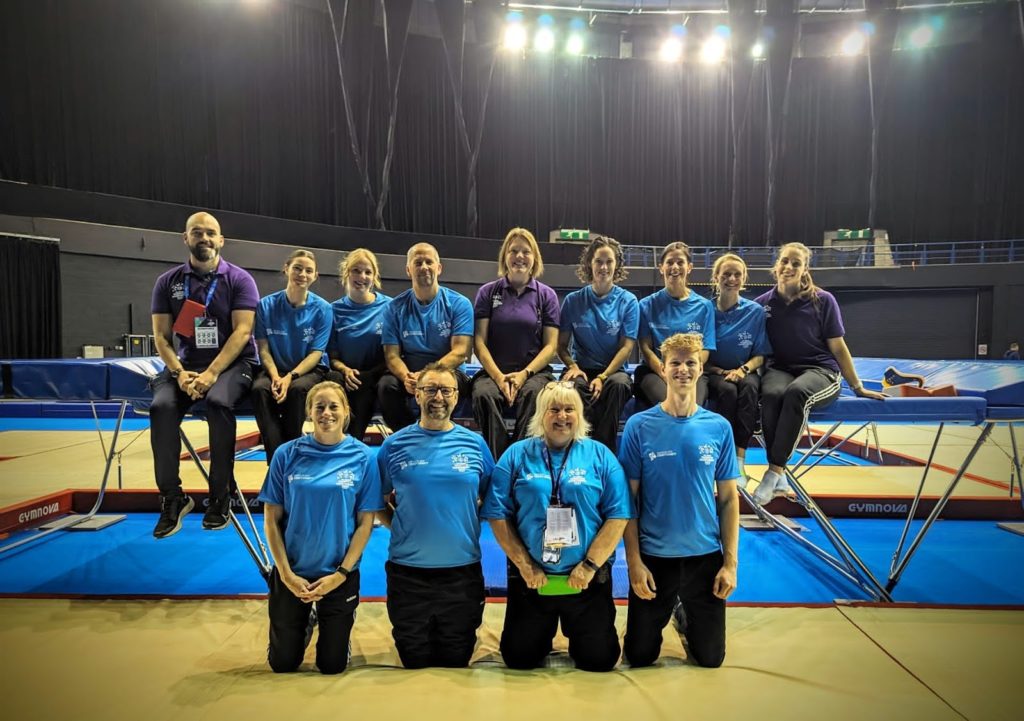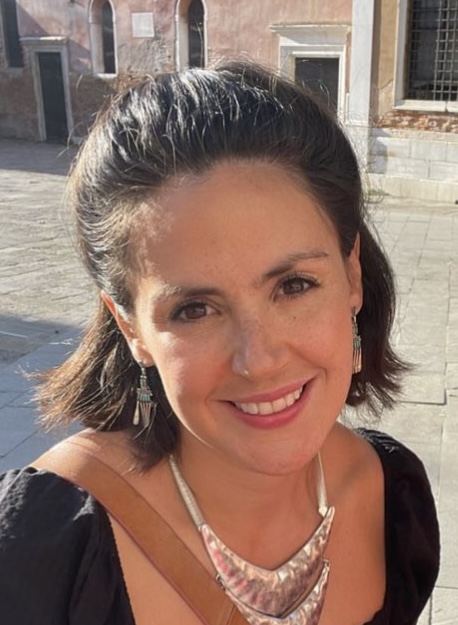By Hannah Millington, Elena Bowley, Grace Leaitherland & Abby Forkner
During November 2023, Birmingham hosted the 37th FIG Trampoline World Championships and the 30th World Age Group Competition at the Utilita Arena. Across the two weeks that these events took place gymnasts from all over the world came to compete in three disciplines Trampolining (both individual and synchronised), Tumbling and Double Mini Trampette (DMT).
Four students (three from the MSc Pre-reg programme and one from the BSc programme), were chosen to work alongside the medical team for the event. They worked alongside lead physiotherapist Laura Hanna and her team as well as Chief Medical Officer Kenny Duffy and his team of doctors.

This opportunity provided students with a chance to experience the role of a physiotherapist within elite sports as well as work on key skills such as communication and teamwork.
Working in a competitive, high pressure environment like these championships requires clear and effective communication within the medical team. Ensuring that doctors and physiotherapists had a similar understanding of the protocols and procedures beforehand was crucial to ensure that athletes would receive optimal care. Teamwork and communication skills were tested daily during role-play scenarios and equipment set up before each shift. Especially seeing as most of the doctors/physios on the team had only worked with each other once or twice before, or sometimes never. So everyone needed to make an effort to communicate clearly and work as a team in these practice scenarios so things could run smoother when injuries occurred.
And these skills were certainly put to the test! At times there would be 3/4 athletes all being treated by the medical team at one time, whilst still needing to have members of the team stationed on the field of play as well as in the warm-up and training halls. So communicating what everyone’s role was was crucial to ensure the smooth running of the patients’ treatment. Whilst we were not leading treatment, it was good to be involved in the process, providing supplies from medical bags and witnessing how the MDT worked together under a high-stress situation involving a traumatic injury of an elite athlete.
I think it is fair to say that this experience gave us all a taste of what working in elite sport is like, maybe best summarised as being an ‘organised chaos’… where you have no control over what unfolds on the field of play but, with exceptional teamwork and communication skills across the team, can manage those situations calmly and efficiently.

C.S.White@bham.ac.uk
